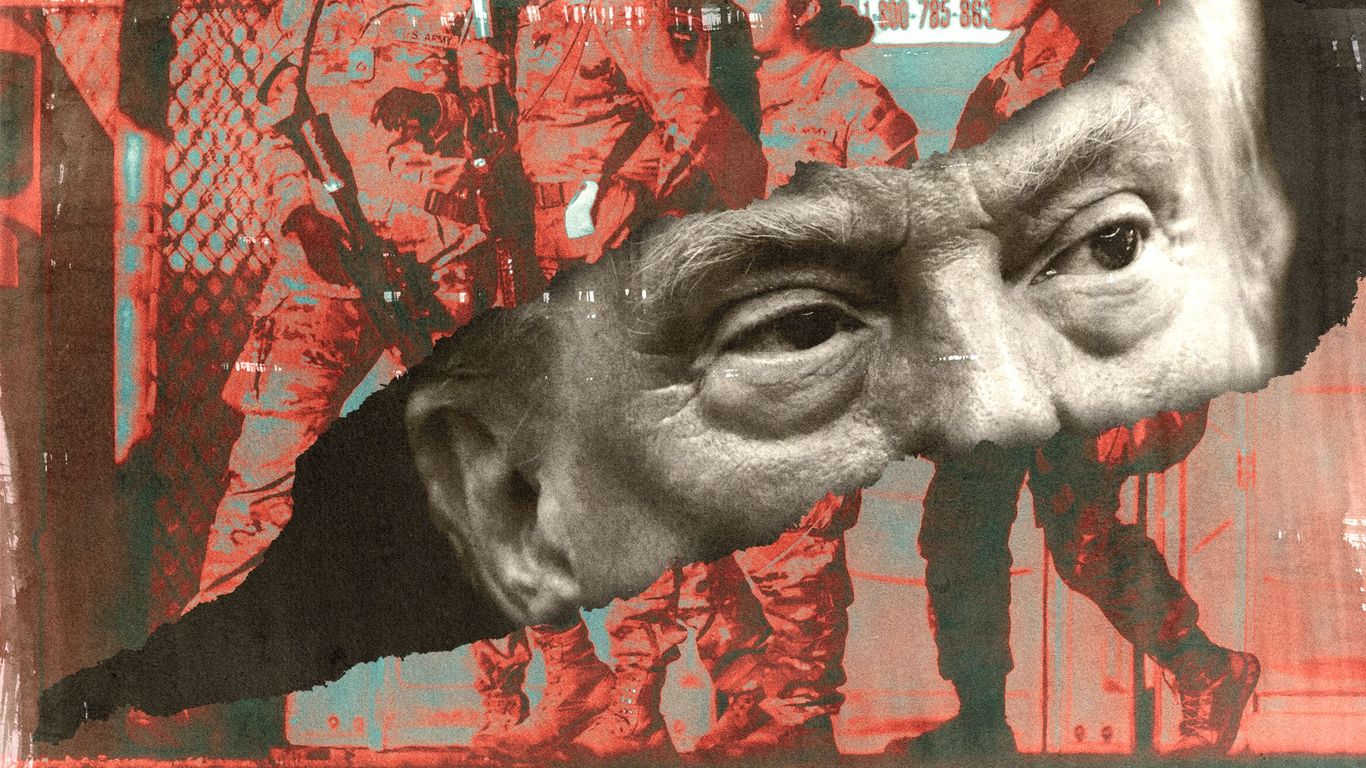Massive No Kings Protests Sweep the US: Millions Rally for Democracy
#protests #democracy #civil_liberties #politics #united_states

Massive ‘No Kings’ Protests Sweep the US
On October 18, 2025, millions of Americans gathered at over 2,700 events nationwide to oppose President Trump’s escalating authoritarian actions. The “No Kings” protests, spreading from the National Mall in Washington, D.C., to Chicago and New York City, marked one of the largest single-day demonstrations in U.S. history, with organizers estimating nearly 7 million participants. The movement, rooted in a commitment to democracy, rejects any notion of unchecked presidential power.
Broader Coalition and Peaceful Intentions
The protests were coordinated by more than 200 organizations, including the ACLU, Planned Parenthood, and the American Federation of Teachers, all emphasizing nonviolence. Virtual safety trainings preceded the demonstrations to ensure peace and order. The diverse coalition united to resist policies perceived as undermining voting rights, civil liberties, and social justice.
Political Reactions and Significance
Republican critics labeled the protests “anti-American,” while supporters framed them as a vital defense of democracy over dictatorship. The scale and passion of the “No Kings” movement highlight deep divisions and the ongoing battle over America’s political future.
About the Organizations Mentioned
ACLU
The American Civil Liberties Union (ACLU) is a leading nonprofit organization dedicated to defending and expanding civil liberties in the United States. Founded in 1920 during a period of heightened government repression—including the infamous Palmer Raids targeting political dissidents—the ACLU emerged to protect free speech, due process, equal protection, and privacy, especially for groups historically denied these rights[2][4]. Its mission is realized through litigation, legislation, public education, and community outreach, making it a pioneer in public interest law[2][4]. ## History and Founding The ACLU traces its roots to the National Civil Liberties Bureau (NCLB), established in 1917 to support conscientious objectors and anti-war activists during World War I[1][3]. In 1920, Roger Baldwin, Crystal Eastman, and others reorganized the NCLB into the ACLU, broadening its focus beyond wartime dissent to encompass a wide array of civil liberties issues[2][3]. From its inception, the ACLU positioned itself as a nonpartisan defender of constitutional rights, distinct from organizations focused on specific demographics or causes[3]. ## Key Achievements The ACLU has been at the forefront of nearly every major civil liberties battle in U.S. history. Early highlights include defending targets of the Palmer Raids, supporting labor organizers, and securing the release of activists imprisoned for antiwar views[5]. The organization gained national attention with the 1925 Scopes "Monkey" Trial, challenging bans on teaching evolution and spotlighting issues of academic freedom and church-state separation[5][6]. In the mid-20th century, the ACLU played a pivotal role in landmark Supreme Court cases, such as Brown v. Board of Education (1954), which ended school segregation, and Tinker v. Des Moines (1969), affirming students' free speech rights[5]. The ACLU also fought—though not always successfully—against the intern
Planned Parenthood
Planned Parenthood is a leading American nonprofit organization that provides comprehensive reproductive health care, sex education, and advocacy for personal liberties related to family planning and reproductive rights. Founded officially in 1942 as the Planned Parenthood Federation of America, it evolved from earlier birth control efforts led by Margaret Sanger, who opened the first U.S. birth control clinic in Brooklyn in 1916. This clinic was pivotal in challenging restrictive laws like the Comstock Act, which prohibited distributing birth control information. Over time, Sanger’s advocacy led to the formation of the American Birth Control League in 1921, which later became Planned Parenthood through organizational mergers and name changes by 1942[1][2]. Planned Parenthood operates hundreds of clinics nationwide, serving millions of mostly low-income and rural patients. Its services include contraception, abortion, cancer screenings, prenatal care, infertility treatment, vaccinations, and sexually transmitted infection screening and treatment. The organization is a significant provider of reproductive health care in the U.S., especially for underserved populations[2]. Key achievements of Planned Parenthood include pioneering access to birth control, advancing sex education, and influencing reproductive health policies. Its early activism helped reshape U.S. laws to permit physician-prescribed contraception, marking a major shift in public health and women’s autonomy[1]. The organization has also played a crucial role in public debates and legal battles surrounding abortion rights. Planned Parenthood’s history is not without controversy. Margaret Sanger, its founder, has been criticized for her support of eugenics, which complicates her legacy amid her contributions to women’s health[5]. In the context of business and technology, Planned Parenthood has adapted by integrating modern healthcare technologies and data-driven approaches to expand access and improve service delivery. It remains a major nonprofit entity with a substantial impact on public health, policy, and education related to reproductive rights in the U.S.[1][2].
American Federation of Teachers
The **American Federation of Teachers (AFT)** is a prominent labor union in the United States, founded in Chicago in 1916 by eight local unions, including the Chicago Teachers Federation and the Teachers Union of New York[1][3]. The AFT was chartered by the American Federation of Labor (AFL) with the support of President Samuel Gompers[3]. Initially, the union focused on improving teachers' working conditions and advocating for tenure laws and academic freedom[1]. **Key Achievements:** - **Civil Rights Advocacy:** The AFT was one of the first unions to support equal pay for African-American teachers and demanded equal educational opportunities for African-American children[4]. - **Collective Bargaining:** By the late 1940s, the AFT began to move toward collective bargaining, which became a cornerstone of its policy by the 1970s[4]. - **Desegregation:** In 1951, the AFT stopped chartering segregated locals, and in 1957, it expelled locals that refused to desegregate[4]. **Current Status:** Today, the AFT is the second-largest teacher's union in the U.S., representing over 1.8 million members across more than 3,000 local affiliates[6]. The union encompasses a broad range of professionals, including pre-K through 12th-grade teachers, paraprofessionals, higher education faculty, government employees, and healthcare professionals[6]. **Notable Aspects:** - **Diverse Membership:** The AFT's strength lies in its diverse membership, with notable past members including John Dewey and Albert Einstein[6]. - **Technological Initiatives:** The AFT has invested in digital platforms like Share My Lesson, a curriculum-sharing website developed in collaboration with TES Connect[4]. - **Active Policy Engagement:** The AFT continues to advocate for educational reforms and workers' rights, making it a significant player in U


















